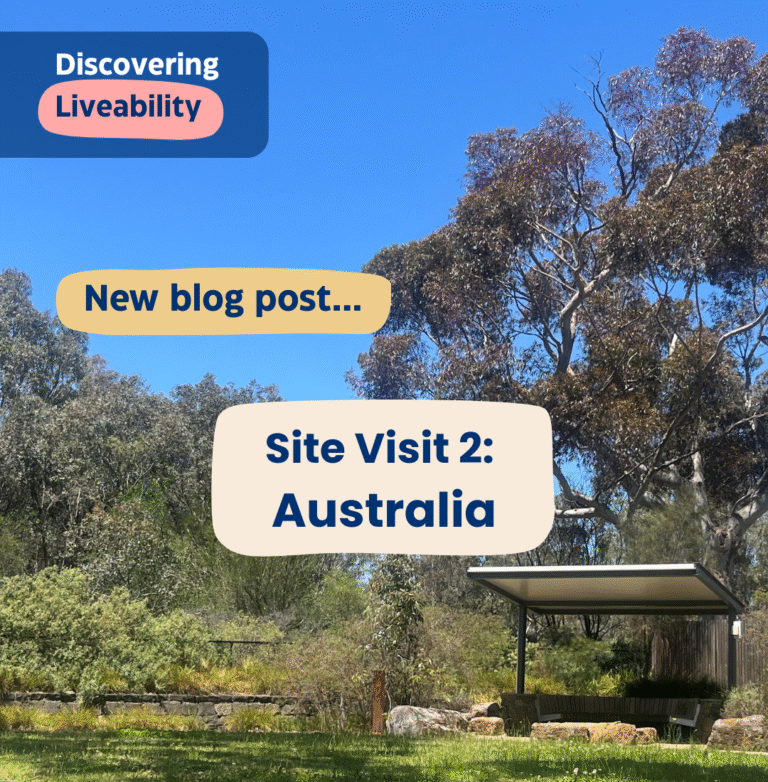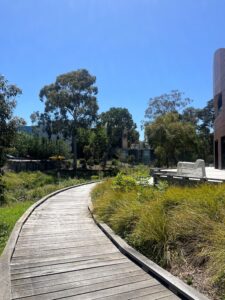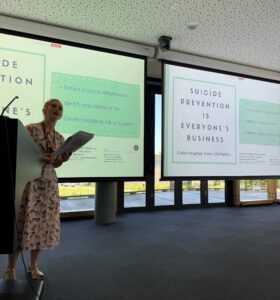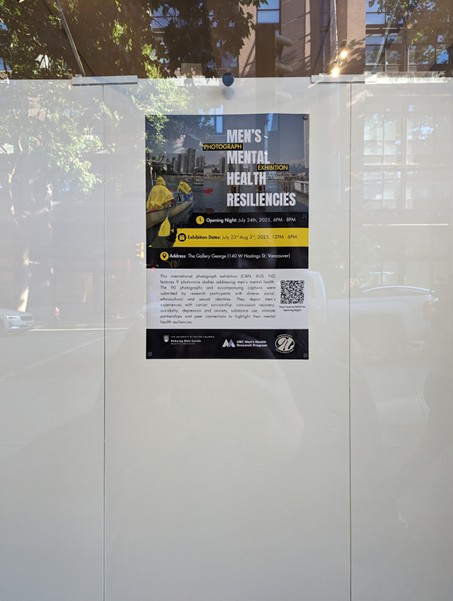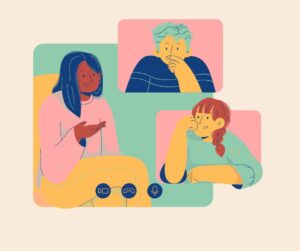WP4 of Discovering Liveability focuses on the actions of the state – how government action around suicide prevention, and areas such as welfare policy; housing; the criminal justice and immigration systems, makes lives more or less liveable. For the past few months, I have been focusing on the suicide prevention policies of Northern Ireland, Wales, Scotland and England and considering the politics of these policies.
Certain types of knowledge have traditionally been privileged when it comes to suicide prevention – largely consisting of epidemiological data and quantitative research from psychological, psychiatric and clinical sciences. This, then, has an impact on the kind of actions suicide prevention policies decide to take. Looking into the evidence used, how it functions, and how other evidence might change the resulting actions (such as from qualitative co-production and engagement with lived/living experience) is key to the Discovering Liveability project. In this blog I focus on a smaller example of this work, a single statistic used within the England policy.
“A 35% Fall in Suicides in Inpatient Settings Between 2010 and 2020”
Throughout the England suicide prevention policy, a statistic keeps being mentioned – that there was a 35% fall in suicides in inpatient settings between 2010 and 2020. The Executive Summary begins:
We have seen one of the lowest ever suicide rates (in 2017) and collective efforts to improve patient safety led to a 35% fall in suicides in mental health inpatient settings in England between 2010 and 2020. (DHSC, 2023: 6)
This “35% fall” statistic is also mentioned at the beginning of the ‘Introduction’, as well as at the start of the section that examines mental health patients as an ‘at-risk’ group. It is here, in the section on patients, where it is most fully explained as coming from “safer physical environments” and “staff vigilance”:
Between 2010 and 2020, there was a 35% fall in the number of suicides in inpatient settings in England when taking into account the number of admissions. This fall is likely due to safer physical environments (including the removal of ligature points), staff vigilance, and wider improvements in mental health inpatient settings. (DHSC, 2023: 29)
The figure is once again mentioned in the ‘means and methods’ section:
Successful intervention is possible […] there have been significant steps taken to improve the physical safety of specific settings, such as removing ligature points from the wards of inpatient mental health facilities over recent years. This has contributed to a 35% fall in the number of inpatient suicides in England between 2010 and 2020. (DHSC, 2023: 57)
By repeating this statistic, the policy is linking success at preventing inpatient suicide to a focus on physical measures of intervention (ligature points and staff vigilance). This highlights how certain types of (often quantitative) knowledge are often used to support and justify certain types of suicide prevention intervention.
When clicking through to the linked source of this statistic, we see it comes from the National Confidential Inquiry into Mental Health (NCISH) Annual Report 2023. This report also mentions the key factor in this reduction as being the removal of ligature points, just as the English policy does – specifically citing the decrease in deaths by hanging (2023: 21).
You might ask then, if there is data to support the England policy’s use of the “35% fall” figure to justify certain types of interventions, why am I writing a blog questioning it?
Is the Data as Clear as it First Appears?
The NCISH report is clear that there has been success in reducing inpatient suicides. However, the paragraph detailing a fall is, importantly, mentioned alongside further context: “the fall in the number of in-patient suicides seems to have slowed in recent years” (2023: 21). Indeed, looking at NCISH’s report, between 2017 and 2020 there appears to have been no fall, and furthermore, when I looked into the updated numbers including the most recent data for 2022, there has even been a slight rise in the rate of inpatient suicides per 10,000 admissions (NCISH, 2025).
A further qualification also needs to be made that the rate of patient suicide overall (not just inpatients, but all those in contact with the NHS) has remained consistent throughout the 2010 to 2022 period. The highest percentage of patients dying by suicide were individuals considered to be “low/no” risk. Inpatient suicide makes up only 6% of all patient suicide (NCISH, 2023; 2025).
It appears then, that the 35% figure used in the England suicide prevention policy, and explanation of this reduction as resulting from “safer physical environments” and “staff vigilance”, needs significant qualification. Any simple causal linkage needs to be called into question when “staff vigilance” is highlighted, given most suicides occurred in people assessed as “low/no risk”, and that, if a focus on ligature points was effective, any effectiveness appears to have vanished since 2017.
This is crucial as, in my analysis of the current English suicide prevention policy (a full report coming out soon!), I found that the actions still prioritise physical interventions such as means restriction, hotspots, and training for staff in risk assessment and signposting. This continues a pattern identified in earlier UK suicide prevention policies by some of my colleagues (Marzetti et al. 2022), and elsewhere (Pirkis et al., 2023; Stoor et al., 2021; East et al., 2021; Wisbech et al., 2025). This continued focus (on means restriction and training in spotting signs of suicide) is significantly challenged, I think, by the broader context of the “35% reduction” statistic. If suicide rates among people in in-patient settings are stagnating, and even potentially increasing; and if the vast majority of suicides among patients are not occurring in inpatient settings, but in those assessed as low risk, this points to the need for a change in strategy. This narrow focus, justified by the use of this statistic, needs to be expanded to include priorities often missing from suicide prevention policy such as lived/living experience inclusion and the social determinants of suicide.
Co-Production, Lived/Living Experience, and Liveability – Change is Happening!
Some change is already occurring in broader suicide prevention policy landscapes. The suicide prevention policies of Scotland and Wales have begun to shift towards the language of liveability, highlighting social determinants, and lived experience inclusion as their priorities – representing a significant shift in focus. Additionally, NHS England guidelines on mental health inpatient care have also begun to propose moving away from risk assessment.
In both NHS England’s Culture of Care Standards for Mental Health Inpatient Services (2024) and Staying Safe from Suicide: Best Practice Guidance for Safety Assessment, Formulation and Management (2025), advice is given to not use risk assessment tools and scales to predict future suicide or determine who should be offered treatment or discharged. Guidance, instead, suggests moving to a “relational”, “psycho-social assessment”, that focuses on “the person’s needs”.
I cite these documents, as, whilst the “35% fall” figure is based in empirical data, the bigger takeaway of both inpatient and all patient stats seems to be the need to move away from the narrow risk based, physical means reduction techniques of previous policies. Whilst ligature points and staff vigilance are important issues, past and contemporary policies prioritisation of these issues limit broader questions of how policies and service provisions often make lives unliveable, and what governments might do to make lives more liveable in the first place.
- By Tom Wadsworth (Research Fellow)
References
DHSC, 2023, Suicide Prevention in England: 5 Year Cross-Sector Strategy, Available at: Suicide prevention in England: 5-year cross-sector strategy - GOV.UK
East, L., Dorozenko, K.P., Martin, R., 2021, The construction of people in suicide prevention documents, Death Studies, Vol. 45, https://doi.org/10.1080/07481187.2019.1626938
Marzetti, H., Oaten, A., Chandler, A., Jordan, A., 2022, Self-Inflicted, Deliberate, Death Intentioned, A Critical Policy Analysis of UK Suicide Prevention Policies 2009-2019, Journal of Public Mental Health, Vol. 21, Issue 1
NCISH, 2023, Annual Report 2023: UK Patient and General Population Data 2010-2020, Available at: NCISH | Annual report 2023: UK patient and general population data 2010-2020
NCISH, 2025, Annual Report 2025: UK Patient and General Population Data 2012-2022, Available at: NCISH | Annual report 2025: UK patient and general population data, 2012-2022
NHS England, 2024, Culture of Care Standards for Mental Health Inpatient Services, Available at: NHS England » Culture of care standards for mental health inpatient services
NHS England, 2025, Staying Safe from Suicide: Best Practice Guidance for Safety Assessment, Formulation and Management, Available at: NHS England » Staying safe from suicide: Best practice guidance for safety assessment, formulation and management
Pirkis, J., Gunnell, D., Hawton, K., Hetrick, S., Niederkrotenthaler, T., Sinyor, M., Yip, P.S.F., Robinson, J., 2023, A Public Health, Whole-of-Government Approach to National Suicide Prevention Strategies, Crisis, Vol. 44, https://doi.org/10.1027/0227-5910/a000902
Stoor, J.P.A., Eriksen, H.A., Silviken, A.C., 2021, Mapping suicide prevention initiatives targeting Indigenous Sámi in Nordic countries, BMC Public Health, Vol. 21, https://doi.org/10.1186/s12889-021-12111-x
Wisbech, J., Jønsson, A.B.R., Holen, M., 2025, Threatened by an individual double-edged risk? Representations of suicidal behavior and people who attempt suicide in prevention policies in Denmark. A poststructural policy analysis, Health, https://doi.org/10.1177/13634593251389636

